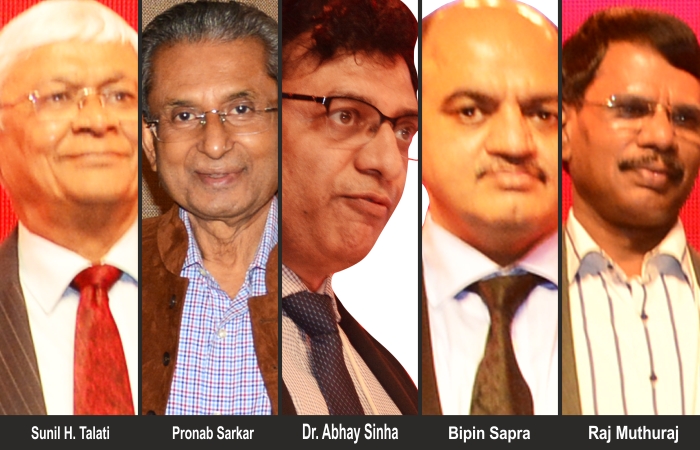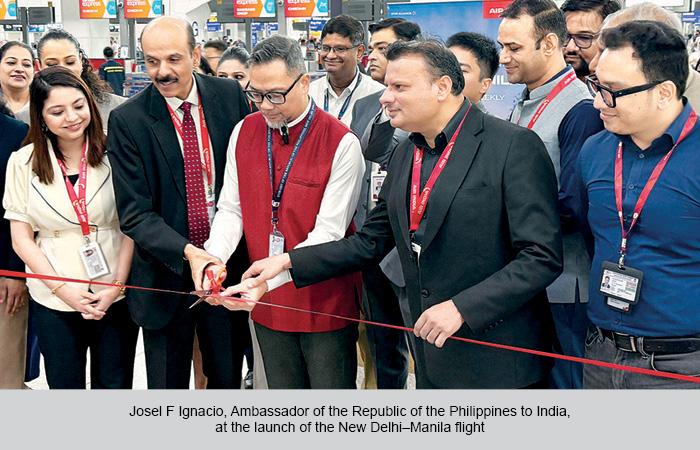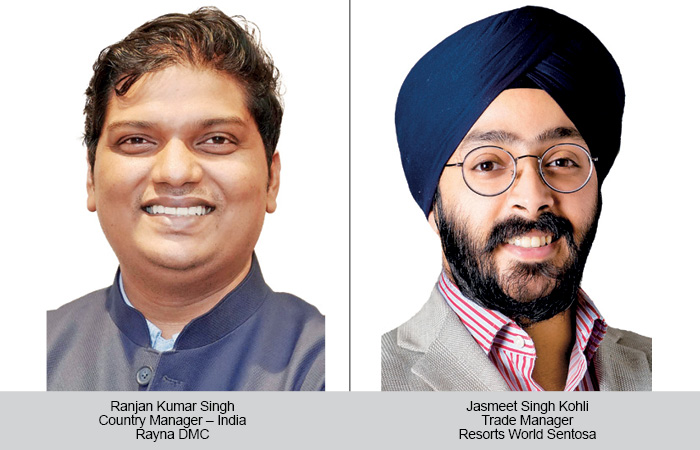While the much-awaited SEIS dues were delayed and turned out to be much lower than expected, tour operators are facing another challenge — the dissolution of SEIS or its appropriate replacement. At one of the discussions recently, experts contemplated the way forward and also discussed alternative benefits for tour operators.
Nisha Verma
One of the business sessions at the recent IATO annual convention delved deeper into the future of Service Exports from India Scheme (SEIS) and what other benefits that tour operators can look for when it comes to the Foreign Trade Policy (FTP).
The session, titled ‘SEIS: New Policy under FTP’, saw the presence of Pronab Sarkar, Immediate Past President, IATO, as the moderator and the panellists including CA. Sunil H. Talati, Chairman, Services Export Promotion Council (SEPC), Raj Muthuraj, Additional DG, Directorate General of Foreign Trade, Dr. Abhay Sinha, Director General, SEPC and Bipin Sapra, Partner, Ernst & Young LLP.
Sarkar said that the association had to wait for a year to get approval from the Finance Ministry to obtain SEIS and the association officials had to run from door to door to get the scheme signed.
“Without the Commerce Ministry’s and SEPC’s assistance, it would not have been possible,” he said.
Continue incentives
Talati said the SEIS for financial year 2019–20 has been delayed due to the pandemic and the government’s thought process. “Piyush Goyal, Minister of Commerce and Industry, stated at the recent SEPC conclave in Delhi that businesses and services today cannot survive and continue to do business solely on government incentives; they must be able to stand on their own. As a result, he is debating whether SEIS should be phased out, and he has already said they (the government) would not be giving SEIS in 2020-21 and 2021-22. For exporters, this is a big shock because the incentive is always included in the cost or profit. The full cost is determined by the surplus created by the incentive. There would be a disincentive if it were to stop,” he said.
He revealed that at SEPC all stakeholders, particularly the IATO, are being asked to make a representation to the Union Finance Minister on the issue.
“I would urge the IATO to also make a representation to the Union Ministry of Commerce and the PMO that service exporter incentives must not be discontinued at any cost since this incentive will promote exports,” he said, adding that “The government wants us to hit a 10-trillion-dollar target by 2030. On the one hand, they want exports to rise from 55 per cent to 59 per cent of GDP growth, but if they stop doing so, it will not be a welcoming idea.”
Second, Talati said, SEPC is putting in a lot of effort and making a compelling case to the government in support of this incentive. “Not only big tour companies, but also medium and small tour operators should join SEPC,” he stressed. “We have met with the Union Commerce Minister, Niti Aayog and we have asked DGFT to give a presentation as well. I believe that good coordination among the RBI, the Ministry of Commerce and the DGFT is required to enhance exports.”
Sarkar argued that without the government’s assistance, tourism in India will not grow. “We will not be able to compete with our neighbours if the incentives are not provided. We need to make our product more valuable. As a result, SEIS must continue,” he stressed.
Probable alternatives
Beyond SEIS, Sinha’s presentation focused on the benefits for tour operators. Later, he said that travel and tourism are integral parts of the 14 service sectors for which the council is accountable for export promotion. SEIS has been delayed and has a ceiling of ` 5 crore.
The Ministry of Commerce needed an alternative plan for the next international trade policy even before the notification concerning the continuation of SEIS was announced. To incentivise the industry, SEPC conducted a research based on the Remission on Duties and Taxes on Exports Policy (RoDTEP). The study is titled ‘Duty Remittance of Export Services Policy (DRESS)’, which is still under consideration.
He said there is a suggestion to establish a customised or sector-specific incentive scheme. “Now the question is: Are we only interested in incentivising completed exports, or in incentivising the entire value chain of exports, which necessitates hand-holding at various levels in order to make them competitive and eventually export them? This is being debated, and we’re attempting to figure out if we can come up with specific schemes for exports to reward exporters, as well as specific schemes for the full process of making an export viable. The Ministry of Commerce and the Ministry of Tourism have already implemented a few projects. Today, SEPC has the opportunity to raise awareness about such programmes as well,” he added.
He continued, “On the alternative schemes, we will hold a series of brainstorming sessions. Despite the fact that we submitted DRESS, we still hope to come up with new ideas and strive to incorporate them into the forthcoming international trade policy.”
No multiple taxation
According to Sapra, Ernst & Young developed a study dubbed as DRESS, which was filed by SEPC to the Ministry of Commerce and aimed at refunding taxes already paid on services.
“Our goal is to construct a scheme that is similar to SEIS in terms of advantages when the new foreign trade strategy is revealed (in two to three months). A tour, according to DRESS, consists of hotel reservations, local transportation, sightseeing and a profit margin. Certain aspects of GST are already built in, such as the 18 per cent tax on five-star hotels, which is an embedded cost. In addition, when a tour operator offers a package, he takes a 5 per cent commission. A nominal calculation yields a tax structure of 12 to 14 per cent, which is incorporated into the tour operator services that are exported. As a result, DRESS addressed the incentive scheme having a percentage that is linked to the tax cost that is contained in the service, and we have proposed that it be based on that,” he stated.
Sarkar said there is a cascading effect, as a result of which tour operators are suffering and in need of government aid.
“This needs to be looked into, and we need to reduce double taxation and remove the cascading impact,” he asserted, adding that, “As per government policy, taxes should not be exported, and we should benefit from this.”
Muthuraj agreed that export is a significant sector for the government in terms of services.
“Our exports were valued at US $125 billion in the current period, an increase of nearly 18 percent. With a change in nomenclature, SEIS is a continuation of a prior scheme. So, from 2014 to 2015, the government has notified whatever services it believes have potential. It was notified the next year as well, and the last notification was in September. Hotels, restaurants, tour guides and travel agents are all well represented in the tourism sector,” he said.
However, there is a budget issue currently and the government is imposing a time limit on all other cases from previous times as well.
“A change has been made to our foreign trading policy. The government extended the deadline to December 31, 2021 and invited everyone to file any outstanding claims,” he said.
The Additional DG advised the tour operators to contact the DGFT’s regional authority in case they faced any problem.
Sarkar said many big tour operators were unable to upload their claims due to the time limit. Another point he raised was that the scrips are being released to people, but they cannot sell them because of restrictions from the
Finance Ministry. “Hence, brokers are approaching them to buy in advance at a lower prices, which is a loss to the actual beneficiary. It is important to look into these things since they have not been released for the last three weeks which is creating a hurdle,” he added. Later, during the questions-answer session, the tour operators raised several related issues and Muthuraj tried to address them.
 TravTalk India Online Magazine
TravTalk India Online Magazine





